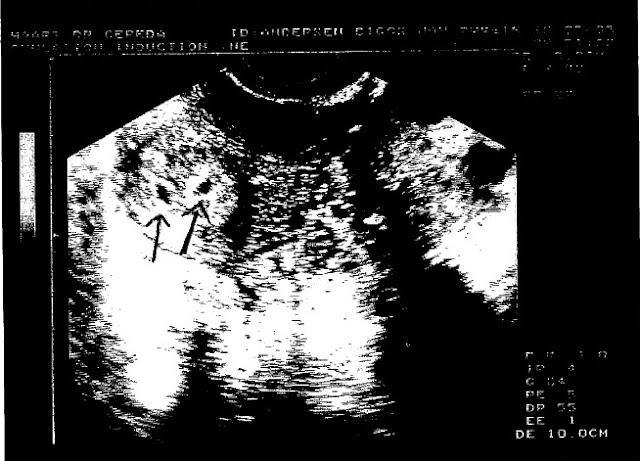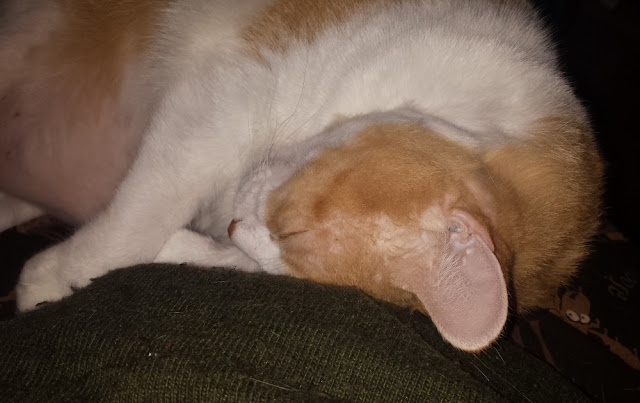Infertility and Miracle Babies: The Story of the Tinks
April 23-29 is National Infertility Awareness Week
in the US and today, my sister Janne tells her story of
infertility, treatment, and two amazing miracle babies. Many of you have
followed the Tinks from they were born, but you may not know that they came to
be because of infertility treatment.
The Tinks at 2 weeks
When did you first learn that you might have fertility problems and how
did that make you feel about your future?
A gynecologist
diagnosed me with PCOS (polycystic
ovarian syndrome) when I was around 15 or 16 and explained that due to a hormonal
imbalance I didn't ovulate regularly, hence my very irregular periods. He
prescribed birthcontrol pills to regulate my periods.
I didn't worry
too much about what it might mean for my potential future as a mother until I
was 19 when my best friend Claire got pregnant. I knew I had always wanted kids
some day, but hadn't really thought about the possibility of not being able to
until she was pregnant with her first. Once her daughter was born I really
started wondering if I'd ever be able to have kids since I didn't ovulate
properly. As the friends started having children, it got harder. I couldn’t
afford fertility treatments and somewhat bitterly, resigned myself to the fact
that I would always be "Auntie" to my friends' children and never a
mom to my own.
What were some of the
biggest obstacles to you becoming a mom?
I went off the
pill in the hopes of becoming pregnant and thought I had succeeded on a few
occasions. But it wasn't due to a pregnancy that I didn't have my period for 3
months, it was due to the PCOS.
It would be
several more years before we attempted any kind of fertility treatment as they
are very expensive and were not covered by the government health plan or my
workplace plan either (note: IVF and certain other infertility
treatments are now covered by the Ontario and Québec governments).
During these
years my best friend went on to have 2 more children and it seemed everyone we
knew had a least one.
What kind of fertility treatments did you undergo?
My fertility
specialist suggested we first try artificial insemination as it was a more
reasonably priced option (still several hundreds of dollars at the time). That
didn't work though, so we started discussing IVF. The cost was incredible
to think of: $5,000 per IVF procedure (this was back in early 2005) which
didn’t include the hormone injections necessary before the actual procedure and
they cost approx. $1,000. And if it didn’t work the first time, then it’d
be another $6,000 to start all over again.
First my doctor
gave me medication to put me into perimenopause so that he could control the
communication between my pituitary gland (which controls your hormones) and my
ovaries. I was 31 at the time and started having hot flashes on a regular
basis. That was fun and made me dread the thought of actual menopause later on!
Then I started the hormone injections to increase my egg production. I
did them myself at home; a daily needle into my stomach. I went for
regular bloodwork and ultrasounds at least 2 or 3 times a week to check my
hormone levels and ovaries. The first round of hormone injections didn’t
produce enough egg follicles. The second time I developed numerous
eggs. Before the implantation, I had to inject a new medication to inject
which would help the eggs mature and take progesterone to help prepare my
uterus.
After the
retrieval, my doctor told me that I hadn’t had as many mature eggs as he’d
thought, but he did manage to retrieve seven or eight, five of which were
successfully fertilized. I then had two perfect (the clinic’s words)
eight-celled embryos implanted. For IVF procedures they always implant
either 2 or 3 embryos to increase the success rate which means an increased
risk of twins or triplets.
I went for a
blood test 10 days after the procedure to see if it had worked. I
remember sitting in my car in a plaza close to my work anxiously waiting to
hear the good news. The nurse told me the best news I’d ever heard – I
was pregnant!! I was told to come in a few weeks later for my first
ultrasound. I was five weeks along when I had my first ultrasound and found
out I was carrying twins!
What's been the best and the hardest parts of it
all?
Going through fertility treatments is one big,
emotional roller coaster. Taking artificial hormones can wreak havoc on your
body - the mood swings, the bloating, the constant worrying that it won’t work,
the numerous doctor’s appointments, blood tests and internal ultrasounds are
the not so fun parts. But hearing a nurse tell you that you’re pregnant
makes it all worthwhile.
What advice do you have to other women who have
fertility problems?
Make sure you’re comfortable with your fertility
specialist. Your relationship with him/her will be a fairly intimate one
during the fertility treatment process.
Do lots of research and ask questions.
Know what’s happening and what is going to happen to your body so you’re
prepared.
I was very upfront with my boss and explained to
him what I was going through and why I had so many doctor’s appointments.
Everyone at work was extremely supportive. It may be hard to discuss such a
personal part of your life with people you work with, but it’s necessary.
The emotional upheaval and financial cost can be
a strain on your relationship/marriage, so make sure you and your partner are
upfront about your feelings and support each other through this whole process.
If you do become pregnant and have a child (or
more than one!!) it’s crucial that you have a strong
relationship. You will need all the love and support you can possibly
get.






Comments